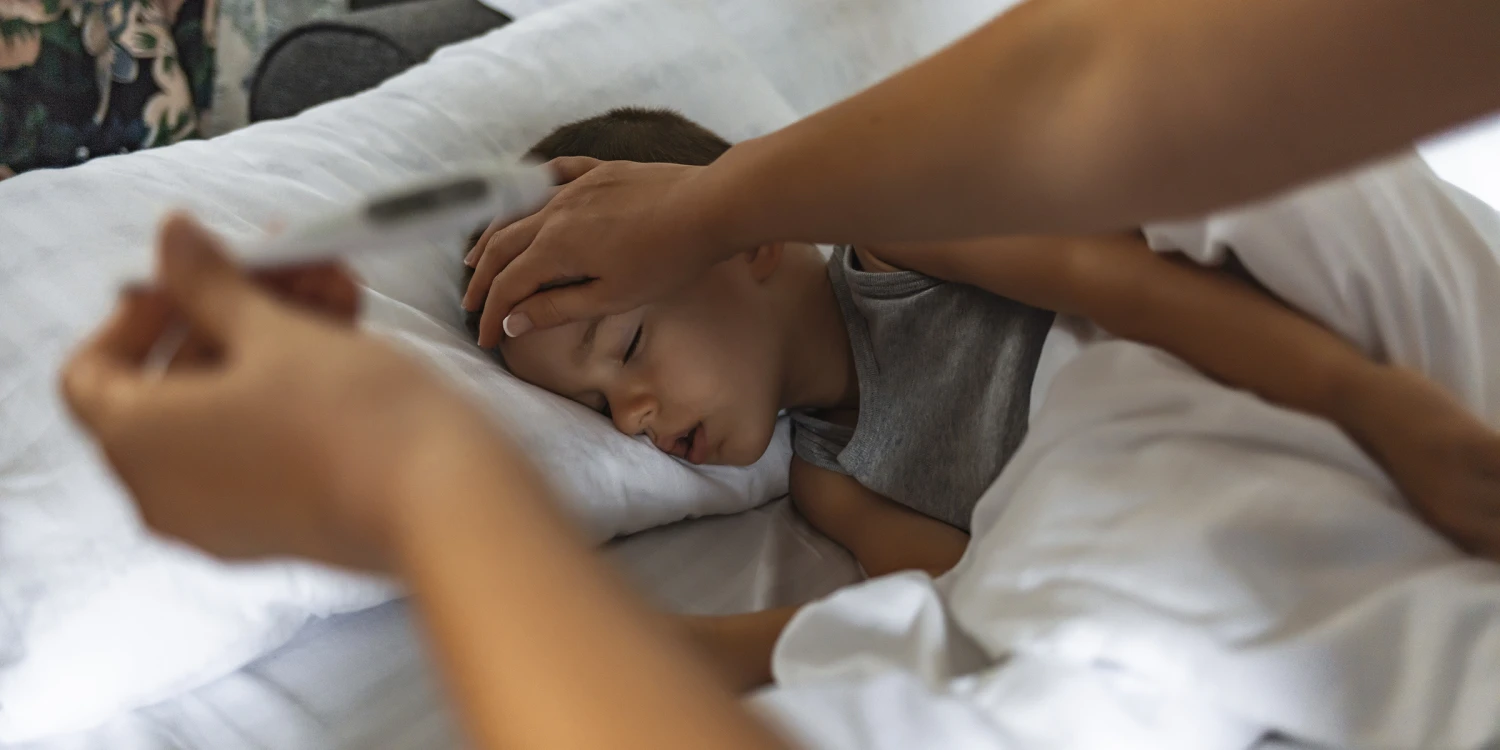What are Febrile Seizures?
Febrile seizures are convulsions that can occur in young children, aged six months to five years, when their body temperature rises rapidly. They are most common between the ages of 12 and 18 months and affect approximately 2-5% of all children.
While the sight of your child having a seizure can be deeply alarming, it’s important to remember that these seizures are usually short-lived, lasting less than five minutes, and are generally not associated with any ongoing epilepsy or neurological issues.
What Causes Febrile Seizures?
The most common cause of febrile seizures is a fever, often due to an infection such as the flu or a middle ear infection. Vaccinations can also cause a temporary spike in body temperature, which may trigger a febrile seizure. It’s important to note that the severity of the fever doesn’t necessarily correlate with the likelihood of a seizure – even a slight fever can cause one in susceptible children.
Febrile seizures also tend to run in families, so if a close family member has had them, your child might be more likely to experience them.
Symptoms of Febrile Seizures
Febrile seizures often come on suddenly. A child having a febrile seizure may:
- Have a fever higher than 100.4°F (38°C)
- Lose consciousness
- Shake or jerk arms and legs
- Roll their eyes
Febrile seizures are categorized into two types:
- Simple febrile seizures: These last for less than 15 minutes and don’t occur again during the same illness.
- Complex febrile seizures: These last longer, occur more than once within 24 hours or are restricted to one side of the body.
What to Do During a Febrile Seizure
Your main role during a febrile seizure is to keep your child safe. Here’s what you can do:
- Lay your child on a safe surface, on their side to prevent choking.
- Do not put anything in your child’s mouth.
- Remove any nearby objects that could cause injury.
- Time the seizure if you can.
Once the seizure is over, contact your pediatrician or seek immediate medical attention, especially if it’s your child’s first febrile seizure.
Diagnosis and Treatment
A doctor will diagnose a febrile seizure based on the reported symptoms and medical history. Tests might be done to identify the cause of the fever.
The primary treatment for a febrile seizure is to address the underlying cause of the fever. Antipyretics such as ibuprofen or acetaminophen may be used to help lower the fever. Antibiotics or antiviral medications might be prescribed if a bacterial or viral infection is present.
Prevention and Long-Term Impact
While there’s no guaranteed way to prevent febrile seizures, keeping your child’s fever under control can help. Make sure to keep your child hydrated and dressed lightly. If your child has a fever, you can give them a fever-reducing medicine. However, always consult with your doctor for the appropriate dosage.
Most children outgrow febrile seizures by the age of five. They typically don’t cause any long-term health problems, don’t reflect intellectual disability, and don’t necessarily mean that the child will develop epilepsy. However, a small percentage of children who have experienced a febrile seizure might be at a slightly increased risk for developing epilepsy in the future, especially if the seizure was complex, there is a family history of epilepsy, or the child has a pre-existing neurological condition.
Conclusion Febrile seizures can be a frightening experience for any parent. However, they’re generally harmless and don’t result in long-term damage. It’s essential to stay calm during a seizure, ensure the child’s safety, and seek medical attention afterward. Remember, every child is unique, and their health situation should be evaluated individually. If your child has had a febrile seizure, it’s crucial to discuss it with your pediatrician to understand what happened and what you can expect in the future. As always, this blog is meant to provide general information and should not be used as a substitute for professional healthcare advice. If you have any concerns about your child’s health, always consult with your pediatrician or a healthcare professional. Stay tuned for more pediatric health topics. Remember, knowledge is the first step in maintaining your child’s health and wellbeing!


